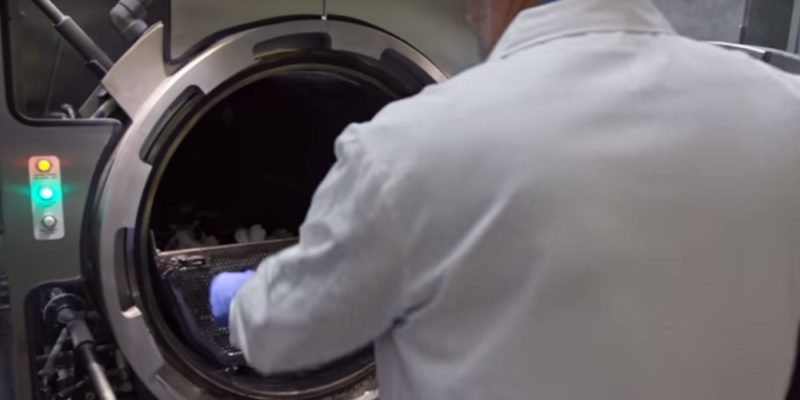
On Jan. 1st biocreamation will be legal in California; however, funeral homes can only connect to the sewer system if their local sewer agency approves. (credit: Motherboard)
During the Legislature’s 2017 session several new California laws were passed that will impact water systems. The Governor has now signed each into law.
AB 967 Biocreamation Facilities Bill – this law becomes effective January 1, 2018. Wastewater districts will have the legal authority to accept or reject liquid cremation of human remains from licensed funeral homes within their service area.
CASA and WateReuse fought hard for provisions that allow wastewater districts to choose if they will or will not allow the funeral home to send human remains into the sewer. Funeral homes could also complete the hydrolysis process of bodies on site and truck the liquid to a co-digestion facility at a wastewater facility.
One of the wastewater agencies who has allowed human body hydrolysis in their service areas reports there has been zero impact on the sewer system.
According to CASA
AB 967 gives explicit discretion to wastewater agencies to either prohibit
or allow disposal of hydrolysate via the sewer system based on their
community’s needs.
Read CASA’s fact sheet on the biocreamation legislation > (pdf)
Article on biocreamation by Scientific America >
Video on water creamation from Motherboard >

AB 574 – DPR Recycled Water Timeline Bill – in a major win for WateReuse and the CA Waterkeepers Alliance, Assemblymember Bill Quirk successfully moved legislation that requires the State Water Board to provide guidelines and permits for Direct Potable Reuse by December 31,2023. The Water Board does have an escape clause if it still feels the State is not ready to implement DPR.
The Legislation picks-up on the State Water Board’s previous work on analyzing the feasibility of DPR. The Board found it was technically feasible but several critical research projects needed to be completed first.
“California is a world leader in potable reuse, using highly purified recycled water for drinking water purposes. The use of recycled water for non-potable uses such as agricultural and landscape irrigation is already well established and has been regulated for decades in California,” said Assemblymember Quirk.
Read Assemblymember Quirk’s press release >
SB 229 Accessory Dwelling Units – these two bills will allow for the faster construction of additional dwelling units on a property. This could impact local sewer systems, including the way agencies assess connection or capacity charges.
Read CASA’s fact sheet on SB 229 > (pdf)
SB 321 Stormwater Treatment and Funding – State Senator Robert Hertzberg has successfully passed a bill that clarifies the definition of “sewers” to include stormwater. The clarity helps to define when local water agencies can raise funding for stormwater projects while complying with Prop 218 requirements.
The legislation adds a missing definition of “sewer service” to state law to include stormwater, which was long considered to be part of that definition until a court decision cast doubt on that interpretation 15 years ago. The measure allows local governments to finance and build projects that capture and clean stormwater just as easily as they can finance and build needed sewer facilities.
“This is a matter of common sense. This legislation clarifies that local agencies should have the same authority to capture and treat all dirty water, no matter what its source,” Hertzberg said.
Have a comment about the Legislature’s water reuse/resource recovery bills? Leave us your thoughts in the comments below…